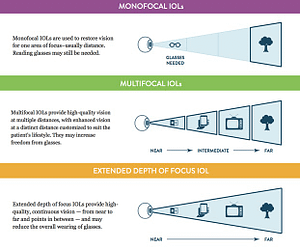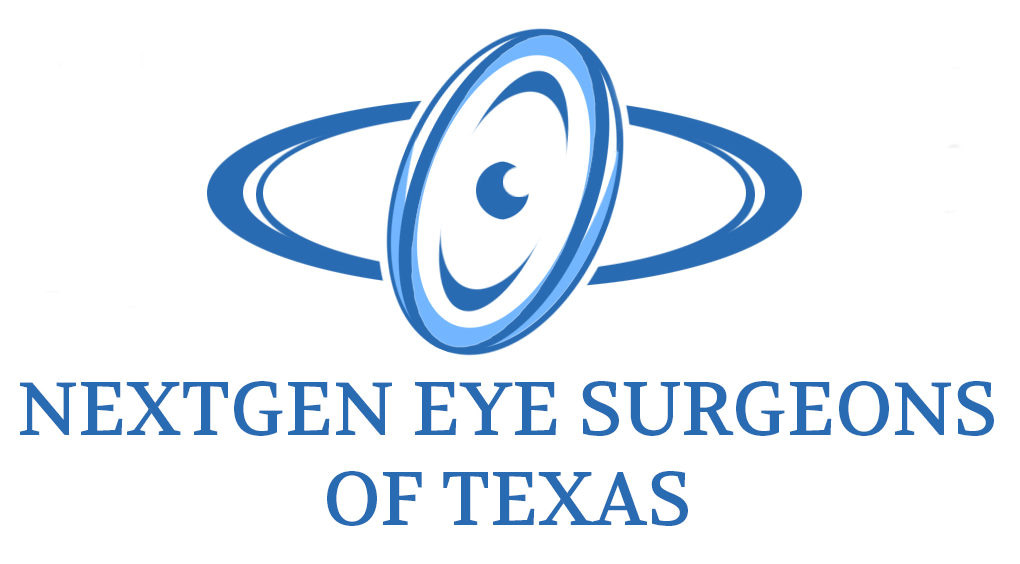1651 N Collins Blvd, Suite 245, Richardson, Texas 75080
8am-5pm Monday-Friday
- Home
- Cataracts
Cataracts

Symptoms of Cataracts
Have you noticed your vision deteriorating or getting increasingly cloudy? Does your impaired eyesight make you feel as though you are looking through a piece of waxed paper or a fogged-up window?
If these symptoms sound familiar, you might have cataracts. A cataract can develop regardless of your age, though they typically affect older adults. In fact, more than 50 percent of adults over age 65 either have a cataract or have had surgery to treat their cataracts.
Fortunately, NextGen Eye's Refractive Cataract Specialist, Dr. Elliott Brodbaker, is renowned for his expertise in cataract surgery in DFW. With extensive training and experience, Dr. Brodbaker has performed thousands of procedures including advanced cataract surgeries. He utilizes the latest technological advancements in the field to get his patients the best results possible.

Cataract Surgery Benefits
- Improve your vision
- Reduce haze and glare
- Spectacle independence
- No more searching for glasses
- Improve your intraocular pressure
What Are Cataracts?
A cataract is a clouding of the eye’s normally clear, crystalline lens. A cataract often develops with age, as a result of proteins clustering together on the eye lens over time. Cataracts tend to progress gradually, leading to increasingly clouded eyesight.
What Causes Cataracts?
The natural aging process often plays a role in the development of cataracts. Aside from the aging process, other causes of cataracts include: eye injury, prior eye surgery correcting a different eye issue. certain diseases (e.g., diabetes), certain lifestyle habits (e.g., smoking, UV exposure), radiation exposure, congenital traits causing cataracts to grow in both eyes, either in utero or during childhood, and a strong family history of cataracts.
Cataract Treatment Options
DFW cataract surgeon Dr. Elliott Brodbaker may be able to treat early-stage cataracts with prescription glasses or contact lenses. However, as a cataract advances and further impairs vision, the only way to treat the condition effectively is to remove the cataractous, or cloudy, eye lens with surgery.
What to Expect During Cataract Surgery
Cataract surgery is a quick outpatient procedure. It is performed under topical /conscious sedation anesthesia, so the most you feel is a mild pressure sensation. Most importantly, you should notice an improvement in your vision within 24 to 48 hours after surgery. To start cataract surgery, your surgeon creates a 2-mm incision in the cornea. Using a technique called “phacoemulsification,” he inserts a small probe emitting ultrasonic waves to break up the cataractous lens into minute pieces. Your eye surgeon can then easily suction the fragments from the eye. Once your surgeon has removed the cataract-diseased lens, he replaces the natural lens with an intraocular lens implant, or IOL, to allow you to see clearly after surgery. At NextGen Eye, we offer a range of IOL options, from traditional IOLs to premium options. The premium IOL options include multifocal IOLs for clear sight at several distances and toric IOLs to correct astigmatism, among others.
When Should I consider Cataract Surgery?
Many patients wonder if they need cataract surgery or not. If so, when? There are a few signs patients need to look out for. Typically, patients will need to have surgery if their cataracts start to significantly affect their vision. If patients are having trouble driving, reading, or even getting work done at the office, then it’s time to schedule a consultation with our expert.
How soon after cataract surgery can I return to work?
Most people can return to work within two to four days. We recommend that our patients speak to our expert surgeon to get a better idea of how much time is needed to recover.
How soon after cataract surgery can I drive?
Patients who received cataract surgery must be cleared by our vision experts and must reach the legal driving measurement. Patients are encouraged to arrange transportation plans on the day of their surgery and during their recovery. For more information about our cataract surgery procedure and other eye procedures please contact our office.
How much does Cataract Surgery cost?
The cost depends on the extent of the patient’s procedure. Private insurance and Medicare offer coverage for cataract removal. At NextGen, patients have multiple financing options to help pay for their surgery. Schedule a consultation with our experts to learn more about the cost of your procedure.
Say Goodbye to Cloudy Vision
If you are frustrated with your clouded vision, you do not have to live with it any longer! Contact our office today for more details about cataract surgery.
Premium Surgical Options
Please call our office to set up a consultation with our expert surgeon to discuss which of the the following options are best for you.
Advances in intraocular lens (IOL) technology have made it possible to dramatically increase a patient’s ability to see over all distances after cataract surgery.
The advent of premium IOL’s such as the Alcon PanOptix®, Vivity®, ReSTOR®, Johnson & Johnson Tecnis multifocal®, Crystalens®, etc. has allowed patients to significantly reduce or eliminate their dependence on glasses.

For more information please see the Multifocal option below or contact us at (469) 998-3554 to schedule a consultation.
Optimize vision for Distance, Intermediate, and Near ranges. Lenses offered include the PanOptix, PanOptix Toric, RESTOR, RESTOR Toric, etc.

Allows for the treatment of higher ranges of astigmatism during the time of cataract surgery.

Cutting edge technology provides live diagnostic imaging of your eye during surgery to allow for increased precision and improved visual results.


Bladeless cataract surgery utilizes breakthrough laser technology to provide a precision customized surgical experience. The laser allows for bladeless cornea incisions, a highly efficient method of lens removal, and precision treatment of astigmatism.


